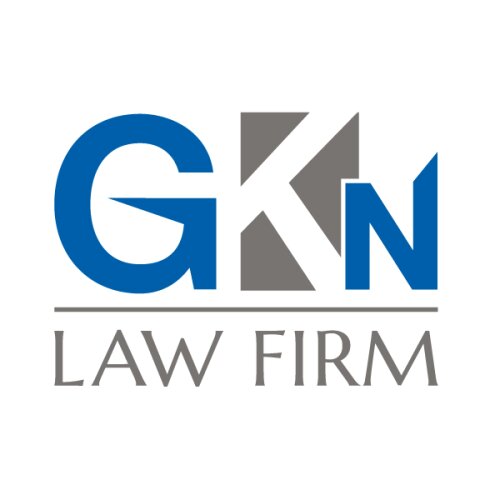Best Gaming Lawyers in Australia
Share your needs with us, get contacted by law firms.
Free. Takes 2 min.
Or refine your search by selecting a city:
List of the best lawyers in Australia
About Gaming Law in Australia
Gaming law in Australia encompasses a broad range of regulations and legislation designed to control and supervise the operation of gambling activities across the country. The legal framework addresses both traditional land-based gaming, such as casinos and poker machines, and digital gaming platforms, including online casinos and sports betting. The authorities aim to ensure fair play, prevent illegal gambling, protect consumers, and minimize the potential harmful effects of gambling on communities.
Why You May Need a Lawyer
People may require legal assistance in the gaming sector for several reasons:
- Compliance: Business operators need to ensure their operations align with complex gaming regulations.
- Licensing: Assistance with applications for gaming licenses, crucial to legally operate a gaming establishment.
- Disputes: Legal disputes relating to payouts, betting contracts, or equipment malfunctions may require legal intervention.
- Consumer Protection: Gamblers may need representation if they believe gaming companies have violated consumer rights.
- Legislative Advice: Individuals or entities may seek advice on new regulations or changes in existing laws affecting gaming activities.
Local Laws Overview
Australia's gaming laws are stringent at both federal and state/territory levels. Here are some key aspects:
- Each state and territory has its own gaming authority overseeing operations within its jurisdiction.
- Online gambling is regulated primarily under the Interactive Gambling Act 2001, which prohibits specific online gambling activities, but some exceptions exist for licensed operators.
- Responsible gaming practices are mandated to minimize the social impact of problem gambling.
- Strict licensing systems are in place for operators, requiring adherence to rigorous standards and procedures.
Frequently Asked Questions
What is the legal age for gambling in Australia?
The legal age for gambling varies by state and territory but is generally 18 years across jurisdictions.
Are online casinos legal in Australia?
Online casinos operated by companies outside of Australia are available to locals; however, domestic operations must adhere to specific licensing under the Interactive Gambling Act 2001.
Do I need a license to operate a gaming machine?
Yes, you must acquire a gaming license through the gaming authority in your respective state or territory.
What is responsible gambling?
Responsible gambling refers to initiatives and regulations designed to promote self-control and ensure gamblers and operators minimize the harms associated with excessive gambling.
How do I handle a gaming-related dispute?
It's recommended to seek legal advice or file a complaint with the appropriate gaming authority if informal resolution attempts fail.
Can individuals access self-exclusion programs?
Yes, self-exclusion programs are available and allow individuals to voluntarily ban themselves from gambling venues and platforms.
What are the penalties for unlicensed gambling operations?
Operating unlicensed gambling activities involves severe penalties, including fines and imprisonment, depending on the jurisdiction and severity of the offense.
Are esports betting covered under Australian gaming laws?
Yes, esports betting is subject to the same regulatory framework as traditional sports betting, necessitating adherence to licensing and consumer protection laws.
How can I check the legitimacy of a gambling operator?
Verify the license through the pertinent state or territory's gaming authority and ensure the operator is listed on their official website or registry.
What measures are in place for consumer protection?
Laws mandate transparency, fairness, and responsible conduct from operators to ensure consumers are safeguarded against fraud and misleading practices.
Additional Resources
- Australasian Gaming Council: Offers research and information on gaming laws and practices in Australia.
- Australian Communications and Media Authority (ACMA): Provides guidance on online gaming laws.
- Local Gaming Authorities: Each state or territory has its regulatory body, such as the New South Wales Independent Liquor and Gaming Authority or the Victorian Commission for Gambling and Liquor Regulation.
Next Steps
If you need legal advice concerning gaming in Australia:
- Identify the specific area of gaming law that your issue falls under (e.g., licensing, disputes).
- Consult with a lawyer specializing in gaming law who is familiar with the local laws in your state or territory.
- Prepare all relevant documentation and information ahead of your legal consultation to ensure productive discussions.
- Contact local gaming authorities if your issue involves regulatory queries or requires mediation.
Lawzana helps you find the best lawyers and law firms in Australia through a curated and pre-screened list of qualified legal professionals. Our platform offers rankings and detailed profiles of attorneys and law firms, allowing you to compare based on practice areas, including Gaming, experience, and client feedback.
Each profile includes a description of the firm's areas of practice, client reviews, team members and partners, year of establishment, spoken languages, office locations, contact information, social media presence, and any published articles or resources. Most firms on our platform speak English and are experienced in both local and international legal matters.
Get a quote from top-rated law firms in Australia — quickly, securely, and without unnecessary hassle.
Disclaimer:
The information provided on this page is for general informational purposes only and does not constitute legal advice. While we strive to ensure the accuracy and relevance of the content, legal information may change over time, and interpretations of the law can vary. You should always consult with a qualified legal professional for advice specific to your situation.
We disclaim all liability for actions taken or not taken based on the content of this page. If you believe any information is incorrect or outdated, please contact us, and we will review and update it where appropriate.
Browse gaming law firms by city in Australia
Refine your search by selecting a city.















